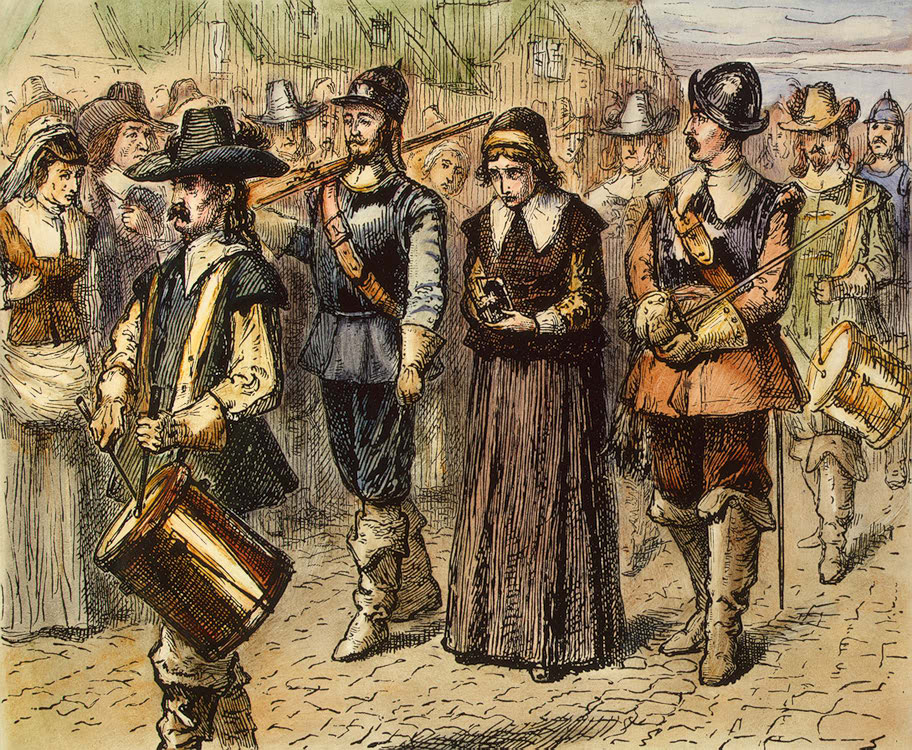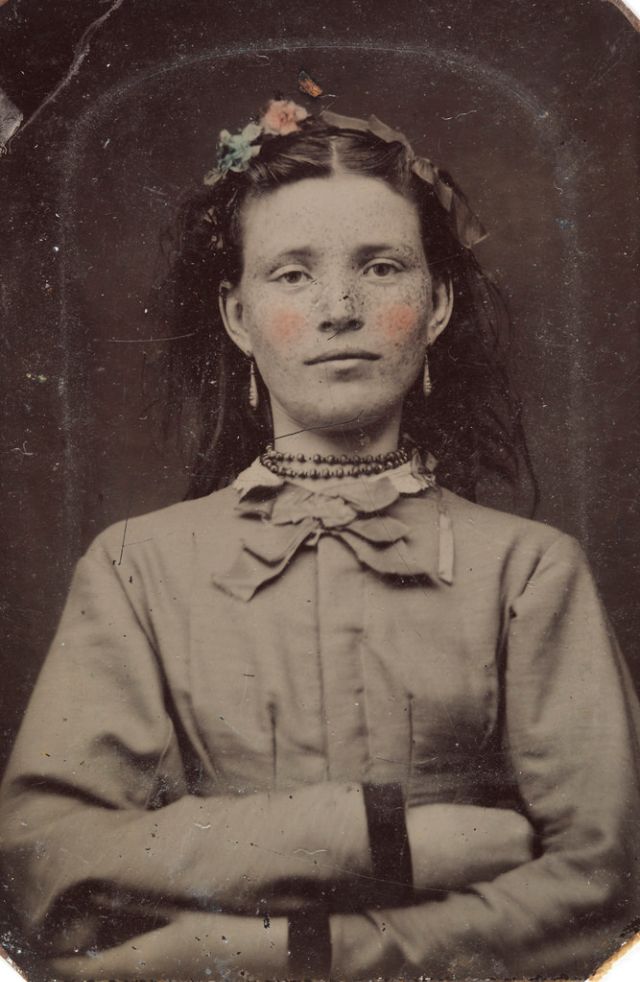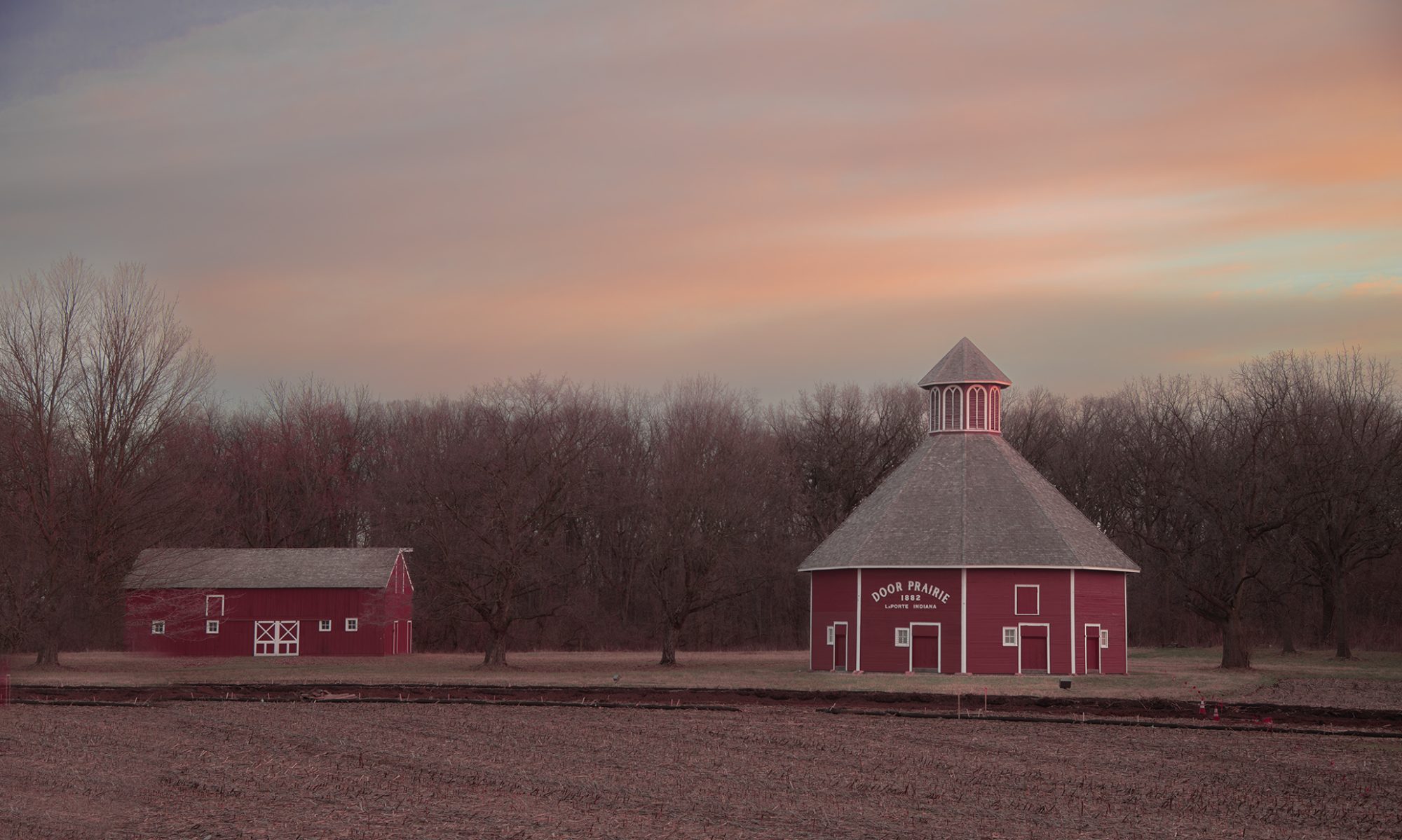
The history books tell of the Puritans coming to America for freedom of religion. This is true, tho, it seems ironic that they did not extend this same rights to the Quakers. According to the Puritan’s leaders in Colonial New England, you could only worship as they would, or face the wrath by them. If you didn’t, you would be severely punished, exiled from New England, or even put to death for practicing your own faith. In the late 1650s my 9th Gr-Grandfather, a Quaker named Nicholas Phelps (1625-1663), was beaten and imprisoned for practicing the Quaker faith. In Boston, 27 October 1659 three Quakers were hung, William Robinson, Marmaduke Stephenson and Mary Dyer. About 1661, Nicholas Phelps, and Samuel Shattuck, another Quaker, sailed to England to petition Parliament to help the Quakers. When King Charles II heard of the treatment of them, he was aghast. They returned to Salem, and got the hangings to stop, but not until a total of four had been hung. Nicholas, and his family were banished from New England, so they to migrated to Virginia. Nicholas was still very weak from the sea voyage, and he died soon after.
Read more about the persecution of the Quakers in Colonial New England here: Mary Dyer, born Marie Barrett (c. 1611 – 1 June 1660), become the third of four Quaker martyrs.
20 Stunning Vintage Photos Show What Victorian Female Fashion Looked Like

From the following link you will find beautiful photos Victorian ladies in the latest fashion of their day, from the website: www.vintag.es/2015/11/20-stunning-vintage-photos-show-what.html
Lovely Portraits of Victorian Teenage Girls from the 1840s-90s

I found a great site that has some wonderful vintage portraits of Victorian teenage girls from the 1840s-1890s. All are quite remarkable and well worth taking the time to see.
Source: www.vintag.es/2016/05/lovely-portraits-of-victorian-teenage.html
The Rebel Yell, for those who always wanted hear it
The Battle of Great Bridge Dec. 9, 1775
9 Dec.1775, the Revolutionary War Battle of Great Bridge VA was fought, which was one first battles of the American Revolution in the south. Fighting on the Continental side the 2nd VA Reg., and the Culpeper Minutemen, with Colonel Vail NC men. At least one Rhodes was there, namely, Pvt. William Rhodes of the 2nd Virginia. See: http://rhodesfamily.org/getperson.php?personID=I1&tree=Carls. On the Crowns side was 14th Reg. of Foot, Royal Ethiopian Reg., and Queen’s Own Loyal Virginia Reg. The Continentals where the victors. Was called by some of the time as the second Battle of Bunker Hill. See: http://www.continentalline.org/articles/article.php?date=0003&article=000301

Christmas Dinner at the Front during WWII
A Narrative of a Revolutionary Soldier by Joseph Plumb Martin in MP3
Journals from the American Revolution are few and far between, and ones from the common soldier are almost nonexistent. Pvt. Joseph Plumb Martin, was one of latter, that suffered and sacrificed as many of our ancestors had to make the country what it is today. The journal is called “A Narrative of a Revolutionary Soldier by Joseph Plumb Martin”. It was originally published in the 1830, when Martin was an elderly man, but his diary begins in the early days of the war when he was a young spirited teenager and follows him through to the the war. The journal was lost to history but was rediscovers in the 1950s, after which it has been reprinted in one form or the another since. Thank in part to the internet we can now download the book in its entirety absolutely free. This following link is audiobook but in MP3 format, A Narrative of a Revolutionary Soldier by Joseph Plumb Martin
A Revolutionary War soldiers Thanksgiving
In my last post I wrote of my favorite book, and one I recommend, the journal of a Revolutionary War Private, called “A Narrative of a Revolutionary Soldier by Joseph Plumb Martin. The following is an exert of the book where he wrote of a Thanksgiving day celebration of 1777.
While we lay here (in "the Gulf") there was a Continental thanksgiving ordered by Congress; and as the army had all the cause in the world to be particularly thankful, if not for being well off, at least that it was no worse, we were ordered to participate in it. We had nothing to eat for two or three days previous, except what the trees of the fields and forests afforded us. But we must now have what Congress said–a sumptuous thanksgiving to close the year of high living we had now nearly seen brought to a close. Well–to add something extraordinary to our present stock of provisions–our country, ever mindful of its suffering army, opened her sympathizing heart so wide, upon this occasion, as to give us something to make the world stare. And what do you think it was, reader? -Guess.- You cannot guess, be you as much of a Yankee as you will. I will tell you: it gave each and every man half a gill of rice, and a table spoon full of vinegar!!
After we had made sure of this extraordinary superabundant donation, we were ordered out to attend a meeting and hear a sermon delivered upon the occasion. We accordingly went, for we could not help it. I heard a sermon, a “thanksgiving sermon,” what sort of one I do not know now, nor did I at the time I heard it. I had something else to think “And the soldiers said unto him, And what shall we do? And he said unto them, Do violence to no man, nor accuse any one falsely.”
The preacher ought to have added the remainder of the sentence (from Luke 3:14) to have made it complete: "And be content with your wages.” But that would not do, it would be too apropos; however, he heard it as soon as the service was over, it was shouted from a hundred tongues.
Well– we had got through the services of the day and had nothing to do but to return in good order to our tents and fare as we could. As we returned to our camp, we passed by our Commissary’s quarters; all his stores, consisting of a barrel about two thirds full of hocks of fresh beef, stood directly in our way, but there was a sentinel guarding even that; however, one of my messmates purloined a piece of it, four or five pounds perhaps. I was exceeding glad to see him take it; I thought it might help to eke out our thanksgiving supper; but, alas! how soon my expectations were blasted! The sentinel saw him have it as soon as I did and obliged him to return it to the barrel again. So I had nothing else to do but to go home and make out my supper as usual, upon a leg of nothing and no turnips.
A Realistically colorized historical photo just in time for Vetrens Day

Here is a link to the website “22 Words” to view more of the awesome images :
22 Words Colorized historical photos
